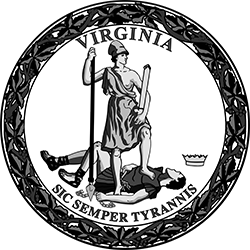The Program-to-Skills Mapping Dashboard allows users to explore the skills taught in academic and non-credit programs across the Commonwealth. Identified skills are based on required course descriptions and other program documents. The tool offers a comprehensive overview of the skills prioritized in Virginia’s higher education institutions. It is a valuable resource for researchers, workforce developers, […]

Improving Virginia's Career Readiness System: The Efficiency of Virginia's Career Readiness System (Brief #5)
The international, nonpartisan Organisation for Economic Co-operation and Development (OECD) recently conducted an in-depth review of career readiness activities in K-12 schools in Virginia. The study is part of the OECD Career Readiness project, which is examining and benchmarking career readiness practices across the globe in an effort to help governments, schools, employers, and other stakeholders better prepare students to enter the workforce. The final report was published on December 1, 2023 and is available here. The report examines the Commonwealth’s career readiness system along the dimensions of effectiveness, efficiency, and equity. This brief, the fifth in a series, reviews OECD’s assessment of the efficiency of Virginia’s system. To assess efficiency, OECD examined how responsive the Commonwealth’s system is to employer needs. The Organisation highlights what Virginia is doing well in many areas and makes two recommendations for improvement.
Strengths of Virginia
OECD noted that the Commonwealth understands the importance of employer engagement with the
career readiness system. Virginia’s education system, including its career readiness system, is responsive to labor market conditions, and the business community already participates in the system in a variety of ways.
Key strengths of Virginia include:
- Virginia provides students with a list of high-demand, high-paying occupations. Students also receive
information on career pathways that lead to those occupations. - The Virginia Department of Education (VDOE) collaborates with the business community on the development
and refinement of career and technical education (CTE) programs. - High school students are eligible for the Workforce Credential Grant (WCG) program, which provides funding for short-term credentials leading to high-demand occupations.
- The Virginia Office of Education Economics (VOEE) has built an Education and Labor Market Alignment
Dashboard to inform policy and practice, including CTE and other career readiness activities. - Virginia encourages students to earn an industry-recognized credential to fulfill a graduation requirement
- Businesses engage with students in innovative ways, including through Career and Technical Student Organizations and the Virginia Chamber of Commerce’s K-12 Innovation Challenges
Recommendations for Virginia
OECD recognized Virginia’s efforts to include employers in the career readiness system, but there is still significant room for growth and improvement to better align students’ education, career readiness experiences, and interests with labor market needs. To guide students more efficiently, OECD makes two recommendations for improving the career readiness system.
Recommendation 1
Virginia should consider encouraging and facilitating collaboration between schools and employers to provide better work-based learning (WBL) opportunities.
While the Commonwealth does encourage collaboration between schools and employers, the career readiness system remains focused on short-term pathways and programs. There is less emphasis on actual labor market opportunities and outcomes. This is evidenced by Virginia students’ relatively low participation in WBL. In 2020–21, only 18% of Virginia students who concentrated in CTE participated in WBL, compared to 38% of students in Georgia. When schools do engage with employers, this usually occurs in an ad hoc fashion, without guidelines or oversight. The lack of consistent involvement by employers and important career readiness activities such as career talks can lead to mismatches between student education and experiences and employer needs. Students may leave the K-12 system without understanding the breadth of career opportunities available to them.
To increase employer involvement with the career readiness system, OECD recommends that Virginia reach out to employers to explain why offering WBL or other career readiness activities will benefit their businesses. The Commonwealth should also mitigate barriers that limit employer engagement. Legal age restrictions limit minors’ access to apprenticeships and internships. Businesses may also lack information about how to participate in the career readiness system, and schools may not have the financial or other resources to reach out to employers. A more coordinated effort among schools, school divisions, and state agencies can facilitate more employer engagement with the career readiness system. In particular, Virginia should leverage online systems to identify potential employers and connect them with schools quickly, easily, and economically.
Recommendation 2
Virginia should consider providing students and families with better information about careers in the skilled trades to increase interest.
The skilled trades (construction and manufacturing) is one of the Commonwealth’s top five in-demand industries, but Virginia students express limited interest in these occupations. Only 9% of respondents to OECD’s survey of high school students (see Brief #3) planned to pursue a job in the skilled trades. Students are influenced by the labor market in their region of the state and their parents’ expectations, and they often lack a broader understanding of job opportunities across the state. Virginia does encourage students to explore the skilled trades through CTE and offers funding for short-term credentials through the WCG, but student interest remains limited.
Read and download the brief here

